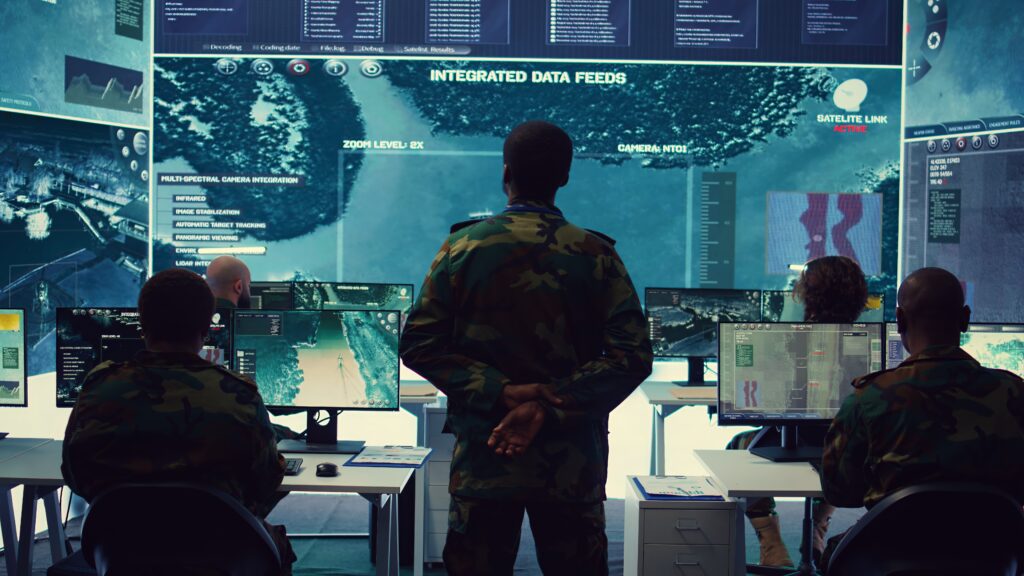Transforming Law Enforcement in Lebanon: The DOS INL ITAP Success Story

The Challenge
In 2018, the Lebanese Internal Security Forces (ISF) faced a critical situation. Their outdated systems relied on paper files and manual processes. Police officers spent hours on paperwork instead of patrolling streets. Information couldn’t be shared between departments, making it difficult to track criminals or connect related cases. The United States Department of State recognized these challenges were holding back Lebanon’s security forces from effectively serving their communities.
The Department of State’s Bureau of International Narcotics and Law Enforcement Affairs (INL) needed a partner who could navigate both technical challenges and the complex security environment in Lebanon. They turned to Prime Source Technologies to transform the ISF’s operations through modern technology.
Our Approach
When our team first arrived in Lebanon, we knew this wouldn’t be a standard IT project. The security situation limited our movements, and we needed to build trust with the ISF while understanding their unique needs. We began by sitting down with Lebanese officers and staff to learn about their daily challenges.
“We spent weeks listening to everyone from patrol officers to command staff,” explains our Project Manager. “We needed to understand their processes before we could improve them.”
What we found was a dedicated police force hampered by outdated tools. Case files were stored in physical folders, making information sharing nearly impossible. Officers had to travel between stations to access records. Human resources data was managed through paper files, creating delays in personnel management.
Based on these insights, our team designed a comprehensive solution with five key components:
- A Digital Foundation: We built a modern IT infrastructure with servers, networks, and security systems that could support the entire police force.
- Criminal Case Management: We implemented a digital system to track cases from initial report through investigation and prosecution, replacing paper files with secure digital records.
- Streamlined Workflows: We automated routine tasks so officers could complete reports quickly and focus more time on police work.
- Modern HR Management: We created digital personnel systems to manage staff information, training records, and assignments.
- Information Sharing: We designed systems that allowed secure information sharing between departments while maintaining strict access controls.
Overcoming Challenges
The project faced numerous obstacles that required creative problem-solving:
Security Restrictions: With limited ability to travel within Lebanon, we established secure remote connections that allowed our U.S.-based team to support implementation without being physically present.
Legacy Systems: Rather than replacing everything at once, we designed a phased approach that allowed the ISF to maintain operations while gradually transitioning to new systems.
Language Barriers: We developed bilingual interfaces and documentation in both English and Arabic, ensuring Lebanese personnel could use the systems effectively.
Infrastructure Limitations: When we discovered power and connectivity issues at police stations, we implemented backup systems to ensure continuous operations.
Cultural Differences: Our team worked closely with ISF leadership to ensure the new systems respected their organizational culture and operational needs.
The Results
Today, the Lebanese Internal Security Forces operate with modern, integrated systems that have transformed their capabilities:
Faster Response Times: Officers now complete reports digitally in minutes instead of hours, getting them back on the streets faster.
Enhanced Investigations: Detectives can instantly access case information, connect related incidents, and track evidence using digital tools.
Better Information Sharing: Departments can securely share critical information, helping identify patterns and prevent crimes.
Improved Personnel Management: Digital HR systems ensure officers receive proper training and assignments based on their skills and experience.
Data-Driven Decisions: Command staff now have access to real-time data about crime patterns, resource allocation, and operational effectiveness.
The impact extends beyond technology. A senior ISF official noted: “These systems haven’t just modernized our operations—they’ve given our officers more time to serve the community and made our entire organization more effective.”
The Bigger Picture
This project represents more than just an IT upgrade. It demonstrates PST’s ability to implement complex technology solutions in challenging environments while supporting important U.S. foreign policy objectives.
Our work with the Lebanese ISF showcases several key capabilities:
International Project Management: Successfully managing complex technology projects across borders and cultural boundaries.
Security Sector Expertise: Understanding the unique needs of law enforcement and security organizations.
Enterprise Architecture: Designing integrated systems that connect different functions while maintaining security.
Change Management: Helping organizations transition from legacy processes to modern digital operations.
Long-Term Partnership: Building relationships that extend beyond initial implementation to ensure lasting success.
The Department of State’s investment in modernizing the Lebanese Internal Security Forces has strengthened an important regional partner while demonstrating America’s commitment to supporting effective, professional law enforcement around the world.
Through this partnership, Prime Source Technologies has helped transform a public safety organization, enhancing security for Lebanese citizens and creating a model for similar projects in other regions.





